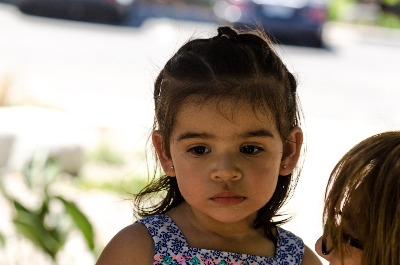 There is no doubt that a child being separated from her parents has a profound effect on the rest of her life. There has been extensive research conducted on the effects that the loss of a parent has on a child, and when the loss is traumatic due to a sudden death or separation, the effects are even greater.
There is no doubt that a child being separated from her parents has a profound effect on the rest of her life. There has been extensive research conducted on the effects that the loss of a parent has on a child, and when the loss is traumatic due to a sudden death or separation, the effects are even greater.
A secure attachment to a parent or other caregiver is known to be one of the most important factors in a person’s overall emotional health, as well as successful functioning in many aspects of life. Children who have lost a parent suddenly suffer a rupture to this attachment, which will have profound effects throughout their lives. When children lose a parent they lose their sense of innocence, which is a defining feature of childhood. Once a child learns that a parent can instantly disappear, they view the world in a very different way. They, in a sense, lose a part of themselves when they are separated from their parents, and this part can never be replaced. This affects their personality as a child and, as an adult, their sense of security, and their relationships. The loss of a parent before the age of 10 significantly increases the subsequent development of mental illness.
In order to heal from a traumatic separation or loss, one must be able to process the emotional pain of the loss. Children’s brains are not yet fully developed, so they do not have the same capacity to do this as adults. Therefore, the younger the child is when she is separated from her parent, the more increased her risks are for developing mental health problems later in life. Because most young children have difficulty dealing with emotions adequately by expressing them honestly and processing them with someone who can provide support, they often get stuck in their emotional development. If they have never learned how to process these feelings, then the feelings are often expressed as psychological problems throughout their lives.
Because the sudden separation from a parent is so painful and frightening for a child, most children are only able to endure such strong emotions for brief periods of time. Therefore they tend to alternatively approach and avoid their feelings, so as not to become overwhelmed. This often results in emotions being expressed in unhealthy ways, such as angry outbursts or misbehavior. Children are likely to manifest trauma-related symptoms and behaviors on an intermittent basis for many years after the separation occurs. So at times it may appear that the child is doing fine and showing no signs of distress, while at other times she may experience very powerful reactions to the loss.
Children who have lost a parent tend to receive lower grades in school and have an increased risk of school failure in adolescence. There are also noticeable effects on concentration, attendance, and educational attainment. The impact of this loss on the child’s academic performance is greater when the separation was the result of an external cause, such as an accident, rather than a natural cause, such as an illness. Studies also show that between 13 months and 6 years post-separation, there is an increased risk of failing exams, school refusal, decreased interest in school activities, and dropping out of school.
Parental loss during childhood is also a major contributing factor to teenage pregnancy. Losing a parent is also associated with an increased risk of smoking cigarettes and drinking alcohol in teenage years. The psychological trauma of being separated from a parent in childhood also puts teenagers at an increased risk of drug use. The younger the child is at the time of the separation, the more likely that child is to develop substance abuse problems later in life. These children are also at increased risk of delinquency and criminality as adolescents and adults.
If children are able to be reunited with a parent after the separation, some recovery may take place if the separation is short and the child is evaluated and/or treated by a mental health professional regularly throughout their childhood and adolescence. Depending on how traumatic the separation is – meaning how scared and helpless the child feels – the child may never recover from this separation even when reunited. Unfortunately, a traumatic event cannot be erased from a child’s mind, and many children will suffer from anxiety, depression, and or post-traumatic stress disorder (PTSD) for several years after a traumatic event occurs, and many will never fully recover. Not all children who experience trauma will develop a mental illness, but all will need to be evaluated and watched to see if symptoms emerge, and treated for any symptoms as soon as possible.


